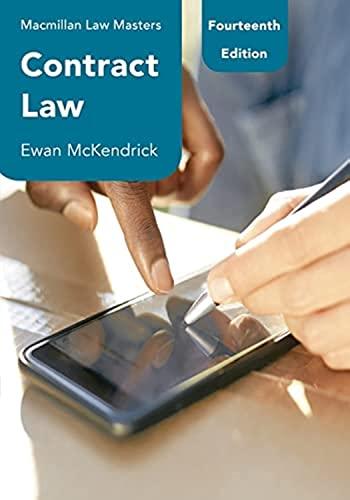Question
Martina Beverly sued her former employer, Abbott Laboratories (Abbott), for employment discrimination and retaliation. During a private mediation, the parties signed a handwritten agreement stating
Martina Beverly sued her former employer, Abbott Laboratories (Abbott), for employment discrimination and retaliation. During a private mediation, the parties signed a handwritten agreement stating that Beverly demanded $210,000 and mediation costs in exchange for dismissing the lawsuit. Abbott later accepted Beverly's demand and circulated a more formal settlement proposal. After Beverly refused to execute this draft proposal, Abbott moved to enforce the original handwritten agreement.
The district court found that the parties entered a binding settlement agreement and granted Abbott's motion to enforce. Beverly appealed this decision, arguing that the handwritten agreement was merely a preliminary document that captured the parties' intention to execute a binding settlement agreement in the future and that Abbott intended to be bound only by the terms of the typewritten final agreement. How do you think the appellate court should have decided this case? Why?
Step by Step Solution
There are 3 Steps involved in it
Step: 1

Get Instant Access to Expert-Tailored Solutions
See step-by-step solutions with expert insights and AI powered tools for academic success
Step: 2

Step: 3

Ace Your Homework with AI
Get the answers you need in no time with our AI-driven, step-by-step assistance
Get Started


